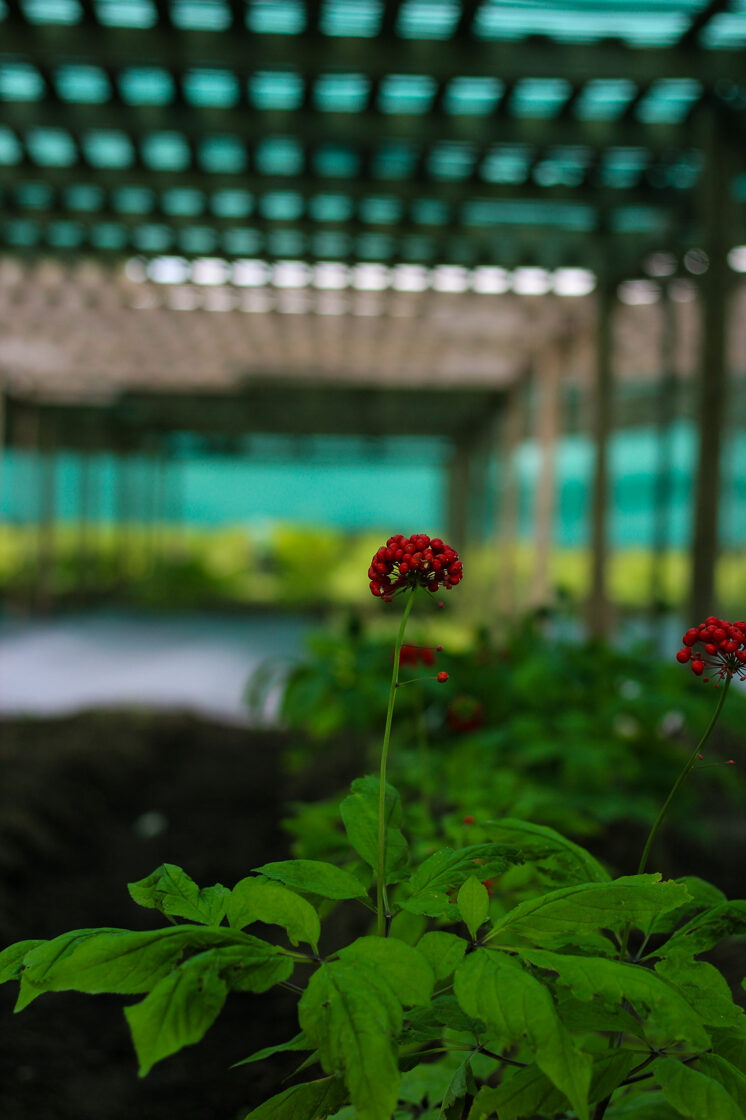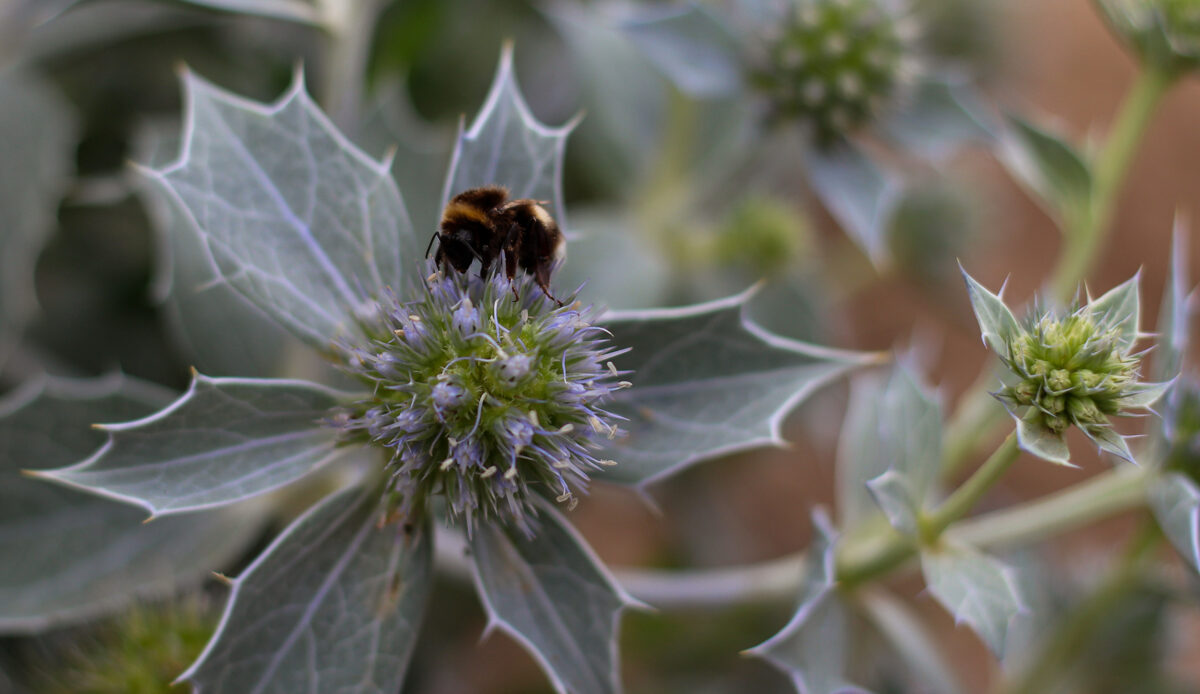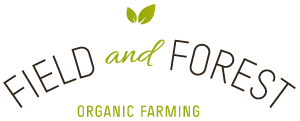Propagation of endangered plant species in IES’s climate control chamber
IES has developed a specially equipped climate control chamber for propagation of endangered medicinal and aromatic plants. The climate chamber helps to prepare the plants for further cultivation in organic farming.
There are several endangered plant species that happen to contain rare active compounds crucial for the production of specific pharmaceutical and cosmetic products. Because of their limited population and high demand in the market, researchers are looking for non-violent plant propagation ways in laboratory conditions and further cultivation in organic farming.

Siberian ginseng (Eleutherococcus senticosus Maxim.) in IES's experimental fields. Photo: IES
For more than a year, IES’s researchers have been testing various in vitro propogation methods in the climate control chamber. The tests are made on three endangered plant species – Siberian ginseng (Eleutherococcus senticosus Maxim.), common yew (Taxus baccata L.), and sea holly (Eryngium maritimum L.). In this method, the plants are propagated in plant tissue culture tubes. To develop this method, the researchers went through various research stages – testing of different seed germination approaches, seed and plantlet tissue cultures, as well as adaptation of propagated plants to the field conditions.
Among the researched plants, sea holly showed the best results in plant tissue culture experiments within the climate control chamber. Therefore, IES’s researchers have started to test the growing of sea holly in experimental fields. The results will clarify, if the propagated sea holly is ready for cultivation in organic farming, thus, also for commercial use. In the IES’s experimental fields, the impact of various factors on growth of sea holly are tested. The tested factors include distance between plant samples, the most suitable growing season (spring, summer), various types of soil, plant grooming in field conditions.

Sea holly (Eryngium maritimum L.) in IES's experimental fields. Photo: IES
Dr. Ieva Mežaka, IES’s leading researcher describing the first results of growing the propagated sea holly in field conditions: "The samples of the sea holly propagated in plant tissue cultures, already showcase great results. More than 90% of plant samples grown in the IES’s climate chamber can adapt to the field conditions. However, the final results will be available just in Autumn 2022, after the first yield. Then, in the laboratory of chemistry, our researchers will analyse the chemical composition of the harvested sea holly. The analysis will showcase what kind of and in which concentrations valuable active compounds are present in the propagated sea holly."

Common yew (Taxus baccata L.) in IES's experimental fields. Photo: IES
In the upcoming seasons, other two researched species - Siberian
ginseng (Eleutherococcus senticosus Maxim.) and common yew (Taxus
baccata L.), also will experience the tests in IES’s experimental
fields. Currently, the researchers are still looking for the most
suitable propagation methods for them. So far, the results show that
Siberian ginseng is struggling in plant tissue culture. For Siberian
ginseng, the researchers have tested different propagation methods, such
as using plant samples gained from seed and plant exchange programmes,
botanical gardens, universities and private collections. However, these
samples showed high plant infection risk in tissue culture. Clearly, the
researchers need to find other Siberian ginseng sample gathering
method. For instance, instead of using dried seeds use fresh ones.
According to the previous researches, fresh samples have lower infection
risk. IES’s researchers plan to gather fresh samples from Siberian
ginseng grown in the IES’s experimental fields. They will be gained
using traditional propagation methods – planting. For planting, IES
gathered a small number of plant samples from plant nurseries.
As a result of this study, IES’s researchers plan to develop a technology prototype for propagation of endangered medicinal plants in plant tissue culture. Thus, helping to adapt them for commercial farming. Furthermore, the created technology can help to reduce the pressure on wild populations of endangered species, and ensure the supply of highly demanded materials for pharmaceuticals, cosmetics and food production industries.
The research study "Research on plant tissue culture application for commercial propagation of endangered medicinal plants" is developed as a part of the European Regional Development Fund programme 1.1.1 "Improve research and innovation capacity and the ability of Latvian research institutions to attract external funding, by investing in human capital and infrastructure" 1.1.1.1. measure "Support for applied research", No.1.1.1.1/19/A/083.
More about the project here.
